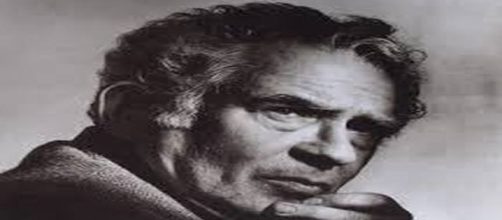Do you know that Facebook option for relationship status “it's complicated”? Keep reading.
Doing the right thing
On March 21, a reader asked Washington Post Restaurant Critic Tom Sietsema if he would review an establishment owned by Mike Isabella, recently accused of “extraordinary sexual harassment and retaliation,” as reported in the Richmond Times-Dispatch. The reader worried about punishing the innocent people who work at his restaurants. “But,” she said, “I don't feel good about going to one of his places now, either.” The critic's answer? “It's complicated.” He said he had to consider the talented chefs, but he doesn't like “giving ink to someone accused of mistreating staff.
it's not our policy to ignore elephants in the room.” That exchange had me thinking about similar dilemmas - a couple of writers I once admired until I didn't.
I can't believe you said that
Long a fan of Ezra Pound's work – particularly his 14-word image-rich poem — “In a Station of the Metro,” (it reads like a painting looks.)
I gave him up when I learned of his anti-Semitic broadcasts on Mussolini-controlled radio four times a week during WWII railing about “Jew-ruined England,” about “the wreckage of France, wrecked under yid control, lousy with kikes.” Granted a great writer is entitled to be as stupid as anyone else, and I should give him a pass but, but I can't. Fellow poet Allen Ginsberg said that on behalf of Jews, he forgave him.
He didn't speak for me.
War is hell
I was also a big fan of Norman Mailer until I wasn't. “The Naked and the Dead,” his first novel about an invasion in the Philippines bowled me over. OK, I was a kid when I read it and probably shouldn't have owing to all its brutality and sexual details and sheer sense of powerlessness. But it was fiction, after all, and I was taken by his ability to transport me to the battle scenes until Mailer's real-life battle took place.
Reality Bites
Mailer lived in my childhood neighborhood on Manhattan's Upper West Side, and I liked seeing him there, imagining him concocting other riveting tales. But the bloodshed in his books spilled over into his life when in a rage, he stabbed his wife (artist Adele Morales) in the chest not once but twice and nearly killed her.
She forgave him and if she could, I should, too, but I never could.
Who's sorry now?
And here's the thing. Both writers, Pound, and Mailer regretted what they did. Pound said. “The worst mistake I made was that stupid, suburban prejudice of anti-Semitism. I found after seventy years that I was not a lunatic but a moron.” And Mailer said of assaulting his wife, “It is the one act I can look back on and regret for the rest of my life.” But to this day I can't read these guys, and as far as I'm concerned, it's not complicated.


